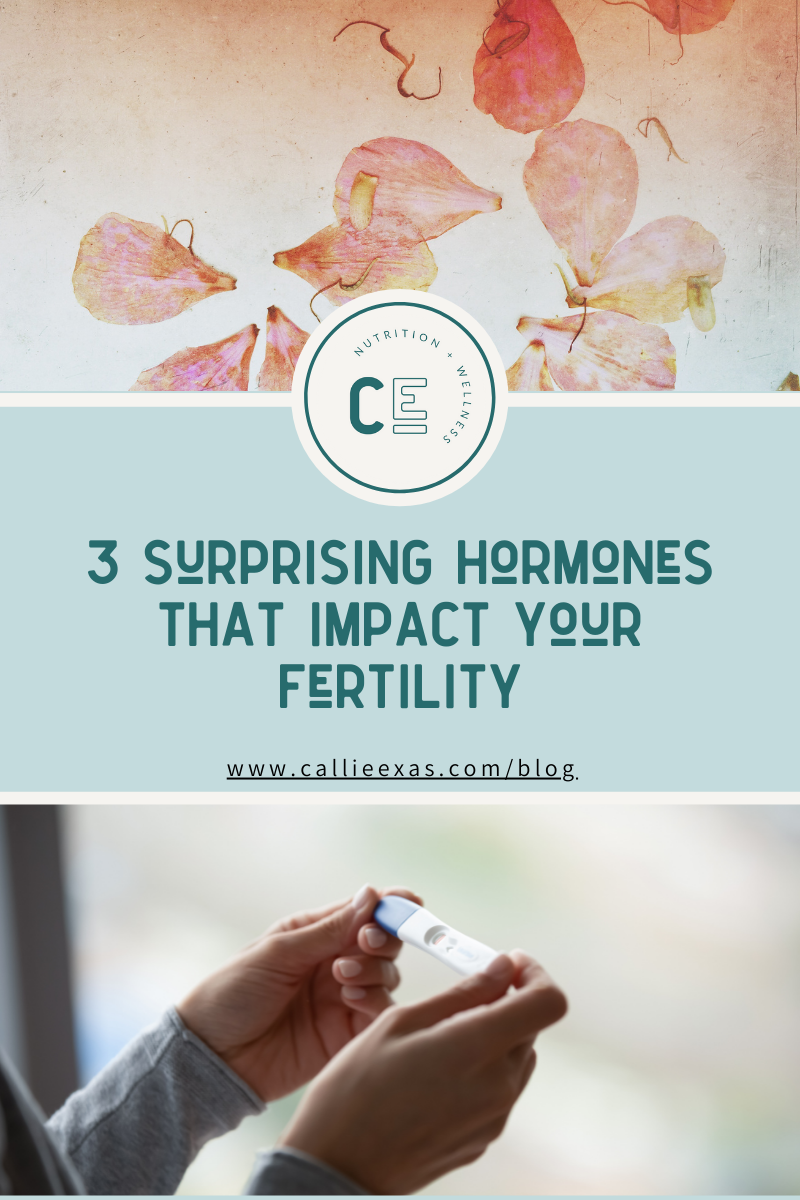3 Surprising Hormones that Impact Your Fertility
Fertility is a sign of your SYSTEMIC health and wellbeing and being in a chronic stress state impacts your fertility pathway. Burnout impacts the ability to conceive and it impacts your ability to thrive on a day to day basis. It also impacts these 3 hormones, which are essential for fertility health.
Your Hormones & Your Fertility
It’s all connected babe!
INSULIN
Insulin is the hormone that regulates blood sugar levels. Burnout is associated with insulin resistance. When you are insulin resistant, your body ignores the signal that your insulin hormone is trying to send. The message is to get glucose out of the bloodstream and into your cells. No signal means more glucose or blood sugar in your cells. This contributes to oxidative stress. Higher blood sugar levels are also associated with increased time to pregnancy
CORTISOL
Prolonged burnout and chronic stress can really f*ck with your body’s equilibrium and reproductive axis, particularly as it relates to your stress hormone, cortisol.
Prolonged stress can cause cortisol to stay too high for too long. High cortisol lowers Gonadotropin-releasing hormone GnRH. Lower GnRH leads to lower follicle stimulating hormone (FSH) and luteinizing hormone (LH).
MELATONIN
Melatonin is a hormone that helps with the timing of your circadian rhythm and plays an important role in regulating your sleep-wake cycle. If your melatonin is imbalanced, you may not be getting enough sleep or low quality sleep. Sleep deprivation can lower fertility. On the other hand, adequate melatonin levels assist in reversing oxidative damage to oocyes and improving egg quality.
Self Care for Hormone Balance
When you talk about addressing the fertility pathway, you have to talk about managing your burnout symptoms. Rather than adding more shit to your list of things to do, try doing these instead.
GETTING GOOD, QUALITY SLEEP
Listen, if there is one thing you can start doing to improve your hormonal balance and reproductive health, it is GO TO BED. When you sleep you aren’t just resting your eyes. Your body continues to work. It’s an integral part of the mind body connection by playing a key role in your fertility hormones, gut microbiome, hunger and appetite regulation, and healing the body at a mitochondrial (cellular) level. Healthy hormone balance is a necessary for fertility and following your circadian rhythm helps your body function best.
BALANCE YOUR PLATE
What and how you eat is an essential component of helping the body synthesize and regulate hormones and reduce stress. Inadequate nutrition contributes to ovulatory disorders that de-regulate your cycle and inhibit implantation.
EAT PLENTY OF FIBER
Eating 25-30 grams of fiber daily reduces beta-glucuronidase in the intestine, which helps to excrete excess estrogen out of the body. Beta-glucoronidase is an enzyme in the large intestine that enables estrogen to be recirculated and reabsorbed in the body, influencing hormonal processes. Fiber reduces this enzyme in the gut and supports detoxification of excess hormones. By adding lots of colorful fruits and vegetables to your plate you are also getting antioxidants that reduce inflammation.
MANAGE STRESS
To improve your fertility pathway, we have to address your stress and bring your body out of fight or flight. This takes time, tools, rest, and the ability to draw boundaries. For many of us, can-do-it-all millennials, this is the hardest part. Our culture celebrates busy-ness. We don't know how to unplug but it's necessary to help the body restore and recalibrate back to normal. Give yourself some love, compassion, and time. Burnout is rough and the only way out is through. Burnout can be hard to identify when we live in a culture that celebrates stress. Give your body the space and time to heal.
-
Do you want help learning how to eat to help your body synthesize and regulate hormones, reduce stress, and support your fertility pathway?
My Burnout to Bebe program is your comprehensive guide to healing your burnout, understanding your fertility, and supporting conception. It includes 13 self-paced educational modules that teach you flexible, science- backed nutrition and lifestyle practices AND 3 1:1 nutrition coaching sessions to address your individual needs.
Learn more or sign up using the link below!


